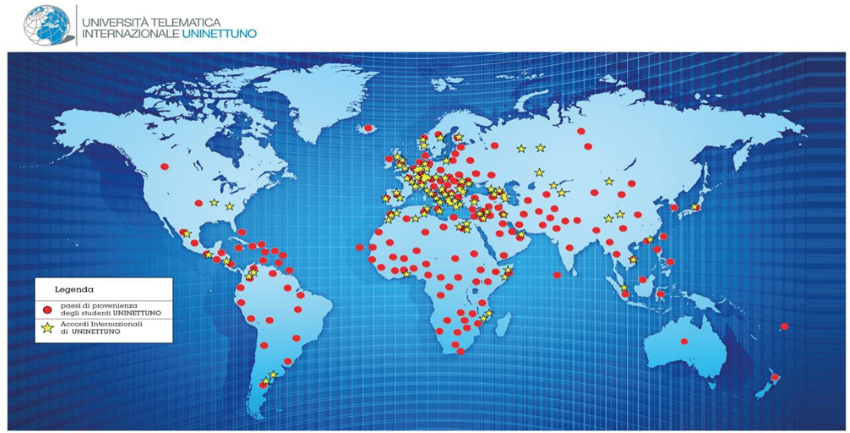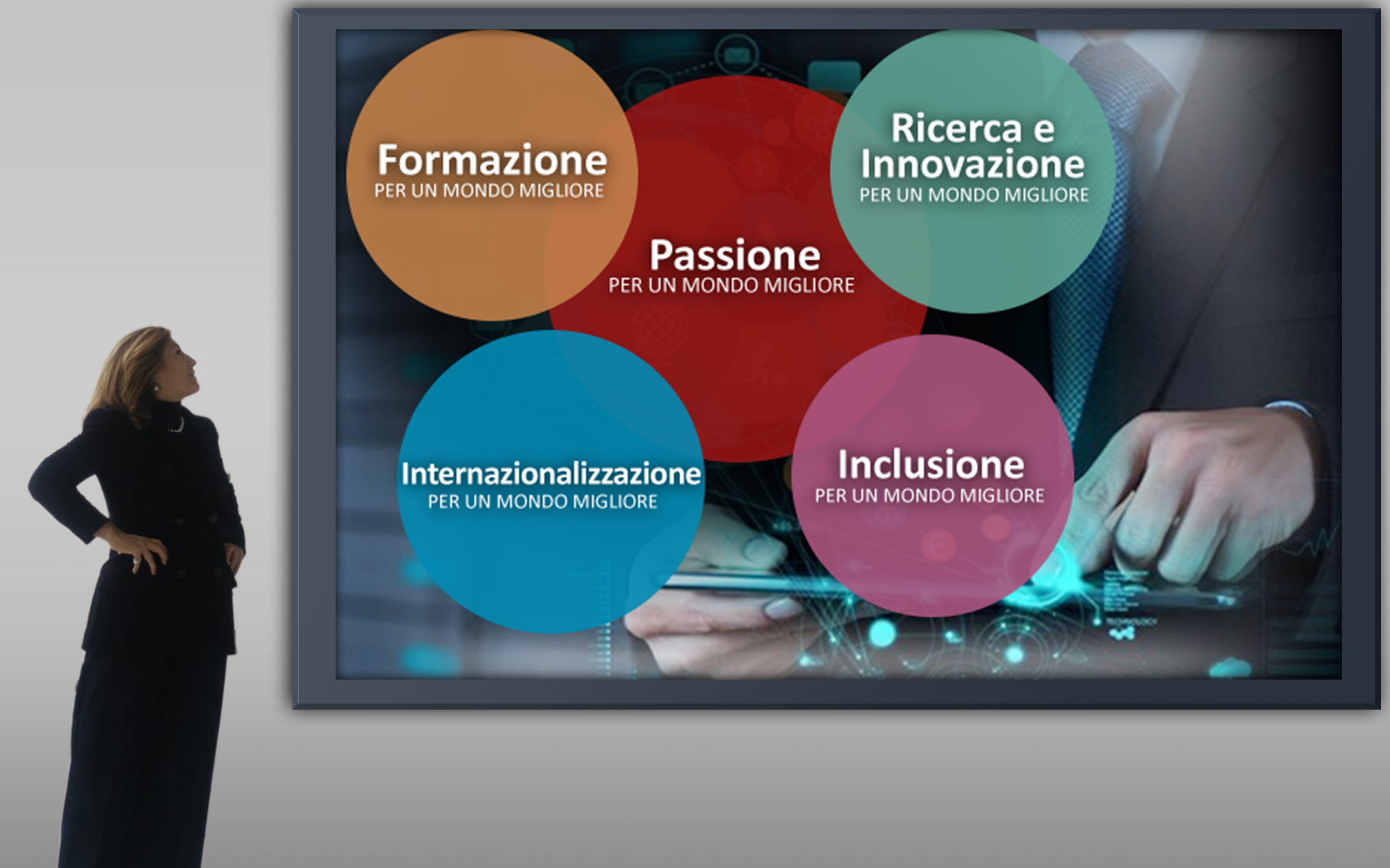The International Telematic University UNINETTUNO, established with the decree of the 15th April 2005 of the Ministru of Education, University and Research, was born from NETTUNO – Network per l’Università Ovunque, with which, since 1992, thousands of students obtained a distance university degree thanks to television and the Internet. At present, some of these universities put at UNINETTUNO’s disposal physical facilities such as laboratories for conducting research work and training activities, libraries, halls equipped with PCs and classrooms to organize face-to-face exams sessions for the students.
UNINETTUNO takes origin also from the international success of MedNet'U (Mediterranean Network of Universities) Project, funded by the European Commission in the framework of the EUMEDIS Program, aimed at realizing a Euro-Mediterranean Distance University.
The development of Med Net’U from project to system was supported by the Governments of the partner countries.
Actually, on the 29th January 2006, in the framework of the Catania 3 Conference " for the realization of a “Euro-Mediterranean Area of Higher Education and Research”, 14 Ministers of Higher Education of several Mediterranean countries, undersigned a joint declaration by which they stated their goal of strengthening the distance learning system of the Mediterranean countries, by expanding the results attained through the Med Net’U Project.
The internationalization process
After the Catania Conference, many agreements were made with Mediterranean countries, in particular with Egypt, Morocco, Jordan, Syria, and Tunisia.
At present, the UNINETTUNO University has developed a global network involving universities and research centers of several countries across the world.

The International Telematic University UNINETTUNO is a great university in which prestigious lecturers from different universities of the world realized a unique international pole of knowledge .
UNINETTUNO students can attend the university with no limits of space and time. Actually, with UNINETTUNO, teaching and learning spaces are no longer only lectures halls, but also open spaces, museums, cultural centers, workplaces, students’ homes, cybercafés. Anywhere in the world, you can choose whether to study in Italian, Arabic, English, French and Greek, on television and on the Internet, and earn a study title acknowledged in Italy, in Europe and in some Mediterranean countries.
A dream come true: wherever you are, with no limits of space and time, you can attend the University
The success of UNINETTUNO organizational, psycho-pedagogic and educational model is recognized at international level.
Education, Research and Innovation, Internationalization, Inclusion, Passion: these are the five principles that have always inspired all those engaged in enhancing the UNINETTUNO University’s model; all together, we realized a laboratory for cross-cultural and cross-language cooperation that has actually democratized the access to knowledge

A revolution in the teaching and learning model. With www.uninettunouniversity.net an open space for exchange and interrelation among cultures.

The distance education delivered by UNINETTUNO takes into account the educational needs of the technological society around us, of the evolution and development of the information technology, of the results of psycho-pedagogic research connected with them.
In particular, UNINETTUNOs’ psycho-pedagogic and educational model was born from the results of many international research programs, under the supervision of Prof. Maria Amata Garito and of her research team.
“In these virtual spaces intelligences get connected to each other, expertise is exchanged, knowledge is developed. The cultures and ideas of professors, tutors and students of different countries of the world confront each other in continuous stream of interrelations.” (M.A.Garito)
The UNINETTUNO University in the future since ever: the University in the Metaverse
“The UNINETTUNO University is a true multidisciplinary research laboratory in which hypotheses for the application of new technologies are first tested and, after verifying their scientific validity, become operational practice; they are therefore in continuous evolution, just as the evolution of our psycho-pedagogical model is continuous, and the University in the Metaverse is one of these results.” (M.A.Garito)
All of the research developed on issues related to virtual and augmented reality, immersive technologies, 3D environments, and artificial intelligence applied to university education, has enabled the creation of the UNINETTUNO Island of Knowledge, the 3D learning environment where students and professors have created their own Avatars. In these three-dimensional environments, people teach and learn in an interactive and collaborative mode.
“Our metaverse is one that respects the person, the individual; students and professors have their own avatars, but do not lose their identity, interacting with people from all over the world in technological environments designed not to jeopardize the sense of self and cognitive abilities of those interacting. The University in the UNINETTUNO Metaverse is also a virtual socialization space for students and professors. Within our 3D university, people can play games together, dance, play a tennis match, watch film and theater works together, and visit exhibition spaces for digital artists. For us, this is the future that is already present, and as always, this has been achieved through research into technological developments that enabled us to develop not only new teaching and learning models, but also new models for socializing online. The present that anticipates the future.” (M.A.Garito)